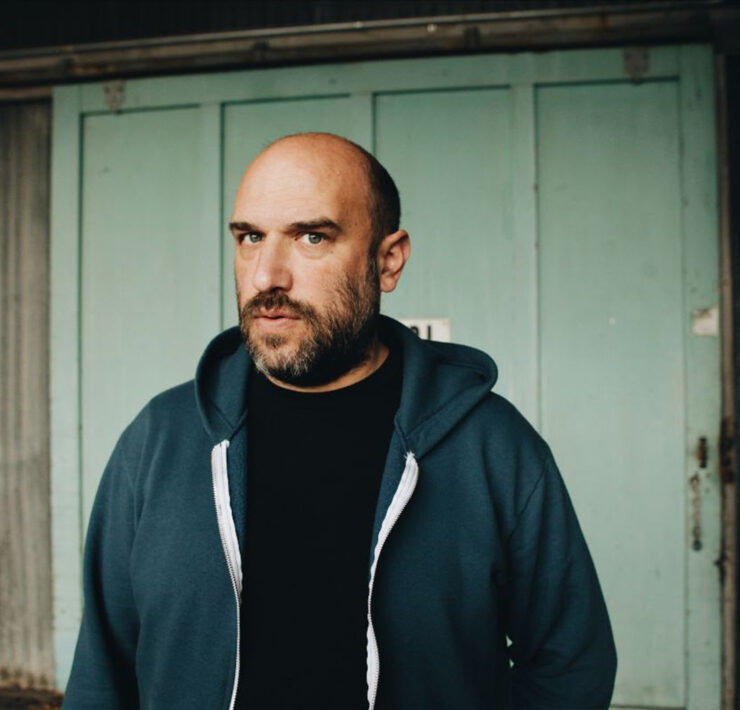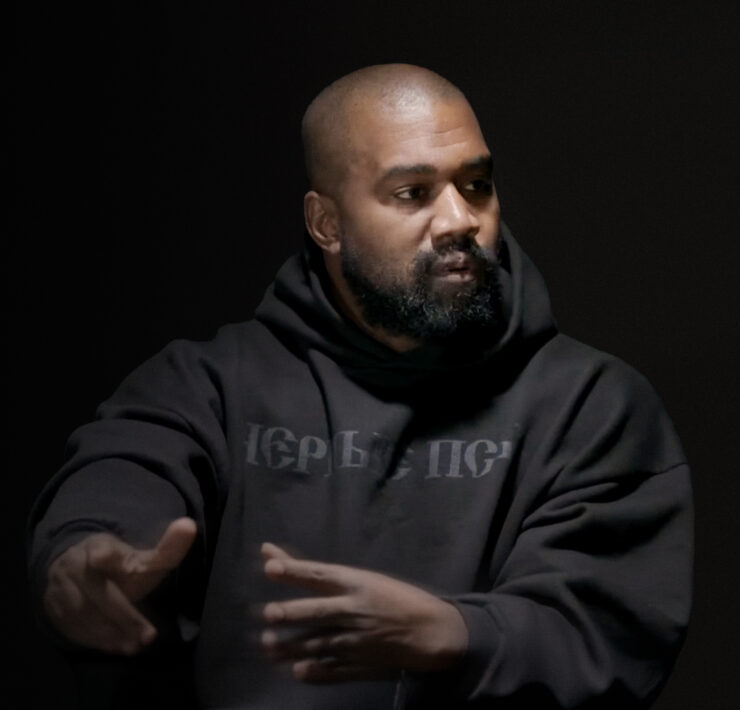“We don’t get religion.” That masterful admission came from the executive editor of The New York Times, Dean Baquet, concerning journalists’ inability to report on the effects of faith on the voters of the 2016 election.
I’d add a sub-group to his claim: Music journalists don’t get religion.
It’s not their fault. By and large, music journalists aren’t religious people, and, if the philosopher Max Scheler is to be believed, the non-religious are as able to describe the psychology of religion “as a person totally blind is able to describe the sensation and mood produced by vivid colors.” (On the Eternal in Man)
I have no problem with softening the edges of this claim. The non-religious album reviewer could sympathize with the God-haunted songs that cross his desk. He could read up on eucharistic theology to understand the indie-rock sensation Saint Seneca’s lyrics: “The flesh of God is flayed for you to eat.” He could go to church with his grandmother to understand Chance the Rapper’s “Sunday Candy,” or brush up on the Lord’s Prayer to get a handle on D’Angelo’s Black Messiah. He could research Eastern Orthodoxy and medieval scholasticism to tell us why the punk band Protomartyr is called “protomartyr;” their latest record The Agent Intellect; its last song “Feast of Stephen.”
Instead, we get NPR’s analysis. They neglect to mention the hermits, heretics and “sodden priests” that roam the lyrics of The Agent Intellect. They recognize that “the band subverts rock while rocking out, infusing angularity with an industrialized blur of motion,” but they miss the fact that the band also subverts rock by framing their punk in and through religious experience.
The bigger the review, the more likely it is to plant itself firmly on the level of aesthetic and political criticism—ignoring, mocking, or (worse) merely “noting” an album’s religious content. This would be forgivable if not for the fact that almost every genre of music is undergoing a religious revival. The press is late to a spiritual revolution that has already changed the face of contemporary music.
A Church in the Wild
The song has become a safe haven in a world increasingly hostile to religious expression. It’s not difficult to see why. Religion in the Western world is largely tolerated only as a private experience, a personal commitment and an individual faith. Public displays of one’s relationship with God are either reduced to a quaint “tradition”—or they are controversial. Speaking aloud about God is always a decision to enter into the culture wars—and so few speak, outside of the echo-chambers of fellow believers and seekers.
The song, on the other hand, has increasingly become a confessional space in which stark honesty about the churning of the spirit is not only allowed but encouraged. The creative arts have a long history of taking to what is taboo in the public square. It is no surprise that they are taking religion, the ugly duckling of modern secular life, under their wing.
Illuminated by the Hand of God
Kendrick Lamar’s To Pimp a Butterfly got all the attention it deserved. But from Pitchfork to Rolling Stone to SPIN, critics barely brushed the reason why Christian preachers were thanking Kendrick for his work and why Christian blogs were doing what the review mills never will—lyric analysis, song by song. The major reviews pointed out the “black experience” and the “hood politics” with due racial reverence but neglected to describe the album as it presented itself—a prolonged battle with Lucifer.
Lucy gon’ call you even when Lucy know you love your Father
I’m Lucy
I loosely heard prayers on your first album, truly
Lucy don’t mind cause at the end of the day you’ll pursue me (“For Sale?”)
It’s this struggle to avoid temptation and get “right with God” (“Alright”) that gives the album an arc and a movement from the arrogance of “King Kunta,” through the suicidal depression of “u,” all the way to the triumph of “i”, where Kendrick is “illuminated by the hand of God.” Kendrick began his previous album, good kid, m.A.A.d city reciting “the sinner’s prayer”:
[lborder]
Lord God, I come to you a sinner, and I humbly repent for my sins. I believe that Jesus is Lord. I believe that you raised Him from the dead. I will ask that Jesus will come into my life and be my Lord and Savior
[/lborder]
He announced his baptism on stage and gave “all glory to God” upon winning a Grammy for Butterfly. Despite these radical signs of faith, the press treats his Christianity as a quaint side note of black culture.
G.K. Chesterton said that the topic of belief is met by the press with either “slanging or silence.” The “slanging” is obvious. Critic David Turner compares Lamar’s faith to rapper Vince Staples’ and typically, considers it as a pre-packaged phenomenon of the black community without existential weight: Kendrick is “teasing earned hope” and “trading temporal pain with eternal salvation.”
Slate magazine’s Carl Wilson turns his otherwise glowing review nasty when it comes to religion: “Christianity comes to the fore, particularly in the latter tale of a run-in with a homeless beggar who turns out to be God himself. Talk about cornball. It’s like a groovy adaptation of a Jack Chick gospel tract.”
This is, of course, a lack of understanding of Kendrick’s lines, which rely on the Christian understanding that the poor are God, not in some fairy-tale fashion, but according to the words of Christ, “whatever you did for one of the least of these brothers and sisters of mine, you did for me.” (Matthew 25:40)
He looked at me and said, “Know the truth, it’ll set you free
You’re lookin’ at the Messiah, the son of Jehovah, the higher power
The choir that spoke the word, the Holy Spirit
The nerve of Nazareth, and I’ll tell you just how much a dollar cost
The price of having a spot in Heaven, embrace your loss, I am God.”
[/lborder]Wilson framed his review as an answer to the question: “How should white listeners approach the ‘overwhelming blackness’ of Kendrick Lamar’s brilliant new album?” He gives no answer. Instead, he peters out into vague predictions of a new golden era of black music, speculating that “some kind of spirit is rising, like a bright cloud of monarchs finally migrating back after an extended stay at Michoacán … I don’t know, and it’s not for me to say.”
His non-answer is no accident. It is the price Wilson pays for regulating religion to a corny sideshow of Kendrick’s socio-political life. He misses the point: White listeners cannot snag some community with the “overwhelming blackness” of Butterfly. Community doesn’t come from claiming solidarity with another person’s experience of race (though resentment might). White people and black people can say “we are not brothers in race or in politics; we are brothers in Christ,” and do so without offense, because Christian brotherhood does not nullify our racial differences, but posits that race is a difference that serves a higher unity in which “all are one in Christ Jesus.” (Galatians 3:28)
Wilson cannot grasp anything but corniness in a trope that goes back to Ancient Greece, resonates through the Middle Ages, and informs the social preaching of our day—the presence of God in a beggar that binds him into a community with me despite our radically different lives. Because of this, he cannot answer the question of his own review. The greatest rap album of the last few decades is a confession of a religious struggle that, in its very religiosity, transcends race without crushing it.
Without this transcendent religious perspective, To Pimp a Butterfly becomes the difficulty that Clover Hope of Jezebel struggles with—an “overwhelming” and “suffocating” experience of a “blackness” that remains “way too vast.” The religion the review ignores is the unifying perspective that makes sense of the album’s “unfathomable complexity,” the guiding light that makes sense of the myriad of characters that populate its soundscape, and the perspective that reveals the album in its undeniably universal quality.
The Only Thing That Keeps Me From Cutting My Arm
What To Pimp a Butterfly was to rap, Sufjan Stevens’ Carrie & Lowell was to folk—a breakaway triumph that topped nearly every “best album of the year” list worth its salt. Pitchfork rightly points out that it is his best album, an emotionally and musically bare confession—“his most classic and pure effort.” But like Butterfly, it has been subjected to a praise that hollows the album of its religious content.
Religion is brushed, and then brushed over. Brandon Stosuy, writing for Pitchfork, argues that “there are Biblical references, and references to mythology, but most of it is squarely about Stevens and his family.” SPIN Magazine, without a word on religion, agrees wholeheartedly: “He’s writing his autobiography.”
I would hardly deny that Carrie & Lowell concerns Stevens’ family. But to call the album autobiographical misses the point that Stevens himself lays out in Pitchfork’s review: “It’s something that was necessary for me to do in the wake of my mother’s death—to pursue a sense of peace and serenity in spite of suffering … This is not my art project; this is my life.”
Only “Eugene” and the album’s title track are strictly autobiographical songs. The rest are expressions of Stevens’ present-moment suffering. He did not create Carrie & Lowell to tell the story of his family, he created it to grieve the wounds and losses of family. The autobiographical details magnified by Sufjan’s critics serve, but do not exhaust, his pursuit. When viewed as an act of grief, the album reveals itself as a fundamentally religious work, a cry to the “God of Elijah” asking “how did this happen?” (“Drawn to the Blood”)
It would take a complete lyrical analysis to show that every song on the album is haunted by the shadow of the cross, but a closer reading of the song “The Only Thing” should suffice to open the door to an interpretation the critics miss. Here, Sufjan paints his suffering in religious colors. It takes a religious eye to see them.
Suffering is rendered tolerable when it becomes sacrifice. Sacrifice, broadly speaking, is the forsaking of a lower good for the sake of a higher one. To wake with all my limbs burning is intolerable. To realize that my limbs are burning because I ran eight miles the day before renders that same pain tolerable—even joyful. When my pain becomes a pain for something—a loss of physical comfort for the higher goods of health and personal triumph, then my pain can become my joy.
What to do, then, when it is not one’s limbs, but one’s life that is burning? If life itself is pain, what higher good can transform that pain into sacrifice and thereby render it tolerable and even joyful? A suffering that cuts to the core of one’s life is only rendered tolerable if it is understood as a forsaking of the good of life for some good higher than life itself. This is why great suffering and religious experience go hand in hand. One either posits some value higher than life that can transform life-suffering into sacrifice, or one finds life intolerable.
This is why Sufjan can sing:
[lborder]
The only thing that keeps me from driving this car
Half-light, jack knife, into the canyon at night
Signs and wonders: Perseus aligned with the skull
Slain Medusa, Pegasus alight from us all
[/lborder]“Signs and wonders” are “the only thing” that keep Stevens from suicide because they give evidence to the existence of goods that transcend human life. When Sufjan says that his album is the struggle to find peace in spite of suffering, it’s a gross misinterpretation to call his album an “autobiography,” rather than an active struggle to believe in the existence of those transcendent goods in whose alchemy the iron of suffering becomes the gold of sacrifice:
[lborder]The only reason why I continue at all
Faith in reason, I wasted my life playing dumb,
Signs and wonders: sea lion caves in the dark
Blind faith, God’s grace, nothing else left to impart
[/lborder]With this as a key, the constantly recurring fear that these goods are “fictions,” “fables” or “myths” begins to make sense, as does Stevens’ decision to “still I pray to what I cannot see.” Carrie & Lowell is a trembling act of faith in the face of death. Without “getting” religion, Stevens’ reviews, while kind, remain incomplete and reductive. Rolling Stone called it an “existential crisis”—a favorite term haphazardly applied to a diversity of experiences by critics who have no idea what to call the religious existence of the human person. The New York Times Magazine wins the award for vagueness. The album involves “questions of faith”—never mind that it contains songs written in and through John, the “beloved” disciple of Jesus, wherein Sufjan sings, “Jesus I need you, be near, come shield me / from fossils that fall on my head.” If the critics missed that Kendrick Lamar was offering us a vision of universal unity in God, they missed that Sufjan Stevens was praying.
Repent, for the Kingdom of God is at Hand
It’s not that these reviews are bad, they have a lot to say, and when it comes to analyzing moods and instrumentation, they say it better than anyone else. What they do not know how to deal with is religion that is more than an “artistic influence” or a vaguely referenced “faith.” When the album is a religious work—an act of believing in, proclaiming, doubting and wrestling with the living God—the critic is as flummoxed as a nonbeliever at a Christmas church service.
As it stands, most critics rely on the popularity of the work of art for the popularity of their review. They uncover nothing new. They provide a basic, parasitic commentary that, at worst, amounts to a banal series of impressions and, at best, gives the album some historical or political context. Through the lens of the critics, one gets the impression that our songwriters “reflect” on deep themes of faith and existence and end up with nothing to say.
We need a generation of critics as fearless concerning religion as the artists who put albums on their desks. We need critics who work to describe the meaning of the increasingly meaningful songs being sung. This would involve long listenings, the end of the first-impression review, a dedication to research and a horribly articulable purpose: to shed light on difficult works of art, reveal their inner unity, describe their structure and articulate in clear terms what the artist is trying to say. We’ll do this, or we’ll miss the coming revival, in which the life of the spirit, so controversial and hurtful to a polarized public discourse, takes refuge in the shadow of the song.




















